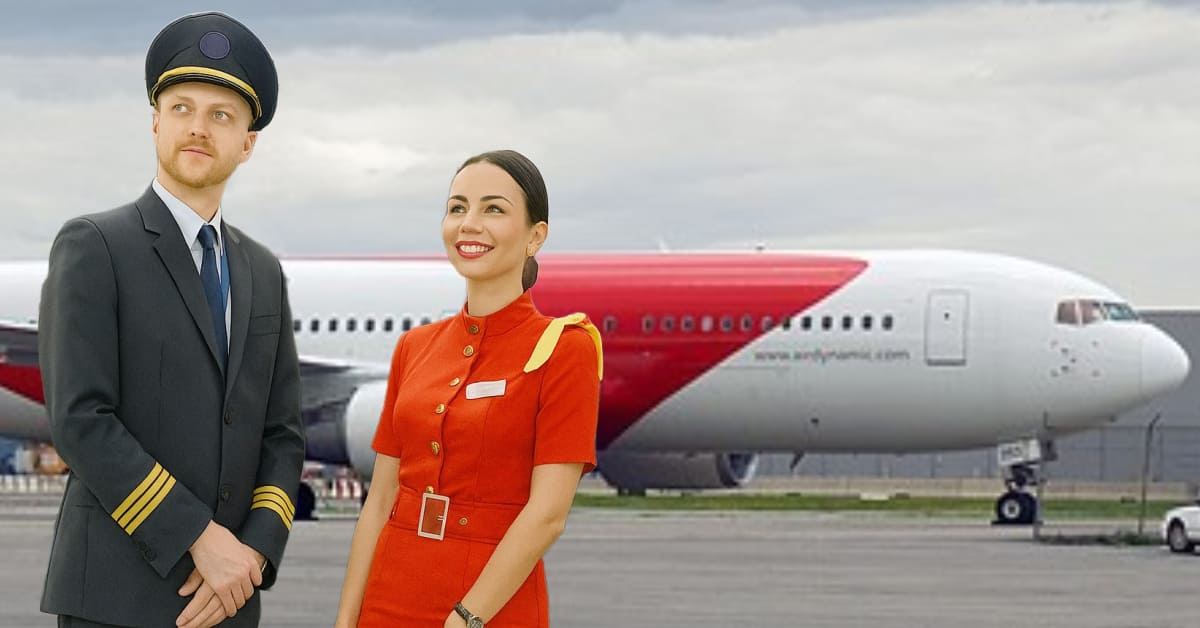Are there any diploma or short-term aviation courses?
Posted on : 5 November, 2025 5:08 pm
Aviation is not just for pilots and aviation managers. It is a wide industry with several career streams including ground staff, cabin crew, ticketing agents, aircraft maintenance engineers, cargo handlers, and so on. For those who wish to join the vibrant industry in a short while, diploma courses and short courses are a great place to begin.
1. Introduction to Short-Term Aviation Courses
1.1 Purpose and Scope
Short-term and diploma aviation courses aim to:
Develop job-ready skills
Promote a speedy entry into aviation professions
Impart practical and theoretical knowledge
Prepare students for specific jobs in the aviation and airline sector
These courses suit:
Recent high school graduates
Working professionals who wish to transition their careers
Those interested in aviation but are not prepared for long-term studies
2. Types of Diploma and Short-Term Courses in Aviation
2.1 Diploma in Aviation Management
This course deals with the operational and administrative aspect of the aviation industry.
Course Duration: 6 months to 1 year
Key Subjects:
Airline operations
Airport management
Aviation law
Customer service
Ground handling
Career Opportunities:
Airline ground staff
Airport operations executive
Passenger handling agent
2.2 Diploma in Cabin Crew / Air Hostess Training
It is one of the most sought-after aviation diploma courses for students who are interested in in-flight service careers.
Course Duration: 6 months to 1 year
Key Subjects:
Grooming and personal development
In-flight emergency and safety procedures
Hospitality training
First aid
Communication skills
Career Opportunities:
Cabin crew
Flight attendant
In-flight service coordinator
2.3 Diploma in Airport Ground Services
This course trains students for airport ground operations, including passenger and cargo services.
Course Duration: 6 months to 1 year
Key Subjects:
Ground operations
Baggage handling
Check-in and boarding procedures
Ramp services
Security procedures
Career Opportunities:
Ground staff
Baggage handler
Cargo and freight handler
Check-in agent
2.4 Diploma in Aviation Hospitality and Travel Management
This course integrates the aspects of aviation, hospitality, and travel & tourism.
Course Duration: 6 months to 1 year
Key Subjects:
Travel documentation
Customer service
GDS (Global Distribution Systems)
Tourism geography
Airport hospitality
Career Opportunities:
Travel consultant
Customer service executive
Hospitality coordinator at airports
2.5 Diploma in Air Cargo Management
This course is designed for those interested in the logistics of aviation and handling of cargo.
Course Duration: 6 to 12 months
Key Subjects:
Cargo documentation
Freight forwarding
Warehousing
International trade regulations
Dangerous goods handling
Career Opportunities:
Air cargo executive
Freight forwarding agent
Logistics coordinator
2.6 Aircraft Maintenance Technician (AMT) Course
Aircraft maintenance and engineering is the subject matter of this technical diploma course.
Course Duration: 1 to 2 years
Key Subjects:
Aircraft structures
Engine systems
Avionics
Safety regulations
Maintenance procedures
Career Opportunities:
Aircraft maintenance technician
Avionics engineer
Quality control assistant
3. Eligibility Criteria
3.1 Basic Requirements
Eligibility can be different based on course and institution, but there are common requirements, which include:
Educational Qualification: Minimum 10+2 (high school) education is required in most courses.
Age: Generally 17 to 25 years for cabin crew courses; technical courses can accept older candidates.
Language Skills: English proficiency is usually necessary.
Physical Fitness: Cabin crew and AMT courses can ask for medical fitness tests.
Communication Skills: Necessary for customer care jobs.
4. Institutions Providing Diploma and Short-Term Aviation Courses
Numerous well-known institutes worldwide provide these courses. Some of them are:
4.1 India
Frankfinn Institute of Air Hostess Training
Indira Gandhi Institute of Aeronautics
Aptech Aviation Academy
PTC Aviation Academy
4.2 International
International Air Transport Association (IATA) certified courses (available globally)
Oxford Aviation Academy (UK)
CAE Global Academy (Canada, Australia)
Emirates Aviation University (UAE)
Online courses can also be accessed through:
Udemy
Coursera (in association with IATA or universities)
Alison
Aviation-specific e-learning websites
5. Advantages of Short-Term Courses in Aviation
5.1 Time-Efficient
Most courses take only 6–12 months to finish.
Enables speedy placement in a job or additional specialization.
5.2 Cost-Effective
Relative to full degrees or pilot training, these courses are much cheaper.
Average charges are $1,000 to $10,000, depending on the country and course.
5.3 Skill-Based
Courses are created keeping in mind their industry applications.
Comprises hands-on training, internships, and simulations.
5.4 High Employability
Most institutes provide placement support.
High demand for trained professionals in emerging aviation centers.
6. Restrictions and Factors to Consider
6.1 Narrow Horizon
Diploma holders may not be considered for senior or managerial positions without more education or experience.
Contractual or temporary work may be present in some jobs.
6.2 Physical and Medical Requirements
Jobs such as cabin crew or AMT have particular health requirements.
6.3 Industry Volatility
Aviation employment is susceptible to economic downturns, pandemics, or global political upheaval.
7. Future Pathways After Diploma
Short-term aviation training can lead on to:
Advanced qualifications (e.g., IATA Dangerous Goods Certification)
Bachelor degrees in Aviation, Tourism, or Management
Specialist jobs such as load masters, airline scheduling assistants, or aviation auditors
International careers with extra language proficiency or worldwide training
With experience, one can rise to senior positions as:
Senior flight attendants
Ground operations supervisors
Cargo operations managers
Airport duty managers
8. Conclusion
Diploma and short-term aviation courses are a logical choice for those looking to join the aviation industry without spending years studying in academic courses. These courses provide hands-on knowledge, quicker entry, and workshop training for all kinds of aviation jobs — right from customer care and logistics to aircraft maintenance and flight operations.
Though they do not carry the depth of a full degree program, they gain a valuable introduction to the industry and an opportunity to establish a career in one of the world’s most vibrant sectors. Whether your ambition is to work on the ground, in the air, or behind-the-scenes, there is a diploma course that will meet your interests and ambitions.

